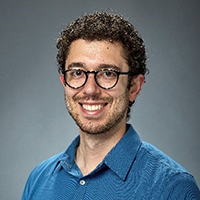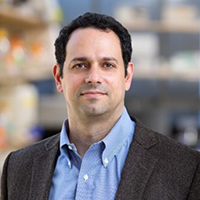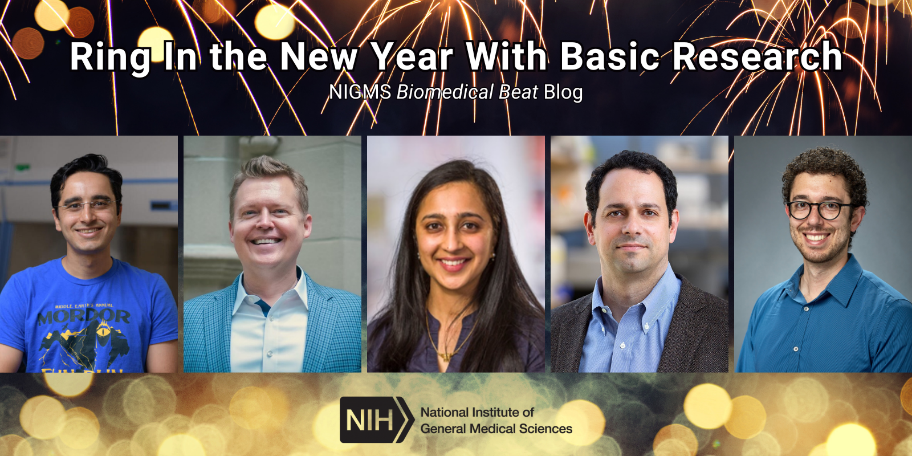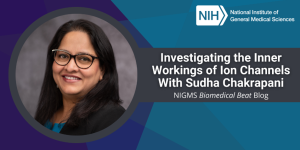Empowering basic biomedical research, which focuses on understanding how living systems work, is one of NIGMS’ main goals. This type of research not only helps us learn how our bodies and those of other organisms function but also lays the foundation for advances in disease diagnosis, treatment, and prevention.
We’re excited to see what the upcoming year has in store for the field! In preparation, we’re highlighting what NIGMS-supported scientists had to say in 2023 about the many merits of basic research. Also check out the links to the Biomedical Beat posts that feature them if you haven’t already.
 Credit: Courtesy of Dr. Dylan Burnette.
Credit: Courtesy of Dr. Dylan Burnette.
Q&A With Dylan Burnette: Muscle Cells, Cell Movement, and Microscopy
The unknown and the unasked questions of cell biology continuously motivate Dylan Burnette, Ph.D., and his research. Currently, he studies the assembly of the sarcomere, the repeating unit that generates force in muscles. “Basic biomedical research such as mine focuses on the unanswered questions in biology, which lead to the generation of new, never-before-asked questions, which lead to new ways of thinking and new discoveries that may then lead to disease treatment,” says Dr. Burnette.
 Credit: Rob Felt, Georgia Tech.
Credit: Rob Felt, Georgia Tech.
Curiosity-Driven Science: Q&A With Saad Bhamla
Saad Bhamla, Ph.D., describes himself as a curiosity-driven scientist. He studies the physics of life around us by asking questions about topics such as how insects pee or how worms blob. “We do this basic, curiosity-driven science with the hope that it will enable others to see something to build upon and eventually improve lives,” says Dr. Bhamla. “Without basic science, we can miss the forest for the trees if we just focus on specific applications. We need basic science to be able to innovate in the applied sciences.”
 Credit: Adrian Sanchez Gonzales.
Credit: Adrian Sanchez Gonzales.
Investigating Bacteria’s CRISPR Defense System to Improve Human Health
Ever since Andrew Santiago-Frangos, Ph.D., read a book about germs while home sick one day as a child, bacteria has fascinated him. Now, he’s increasing our understanding of CRISPR, a bacterium’s immune system. “What fulfills me is making discoveries about how things work at this microscopic scale in biology, realizing the huge impacts those discoveries can have on our well-being, and then sharing those findings,” says Dr. Santiago-Frangos.
 Credit: Courtesy of Dr. Alan Saghetalian.
Credit: Courtesy of Dr. Alan Saghetalian.
Making Microprotein Discoveries With Alan Saghetalian
From an early age, Alan Saghatelian, Ph.D., loved the predictability of chemistry and eventually became interested in using it to answer biological questions. Since then, he’s discovered new molecules, including microproteins—proteins shorter than 100 amino acids. “We’ve come a long way in understanding human biology, but there’s still a lot to learn. The basic studies that we do contribute to scientific knowledge and fill in those gaps. And one day, they may be the key to bettering human health,” says Dr. Saghatelian.
 Credit: Fred Hutchinson Cancer Research Center.
Credit: Fred Hutchinson Cancer Research Center.
Career Conversations: Q&A With Biologist Akhila Rajan
Akhila Rajan, Ph.D., uses fruit flies to study how fat cells communicate with the brain. During the NIGMS 2023 Judith H. Greenberg Early Career Investigator Lecture, she explained how basic research using the fruit fly can impact human health. “Our motivation in this particular work is to leverage this unexpected conservation between humans and flies to uncover biological principles that govern how organisms adapt to nutrient flux,” she said. “And perhaps these findings may provide new strategies for treatments.”
Other Posts You May Like
- Understanding Signaling Through Cell Membranes: Q&A With Chrystal Starbird
- Bil Clemons: Following Scientific Curiosity
- From Science Fair to Science Lab: Q&A With Chelsey Spriggs
- Haley Bridgewater: Taking the Sting Out of Vaccines
- Investigating the Inner Workings of Ion Channels With Sudha Chakrapani







